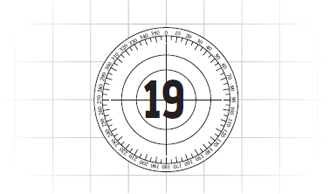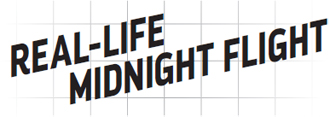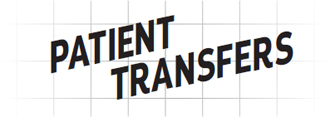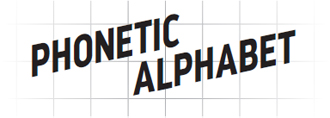Fast Flight (7 page)
Authors: George Ivanoff

Dillon surges forward through time.
Seconds, minutes and hours pass.
Days, months and years â¦
Sixteen years into the future.
Â
It is midnight ⦠on the dot. Magic hour. That time of night when anything might happen.
A young girl is strapped down onto a stretcher. Tubes and wires are connecting her to plastic bags and monitors. There are dried tears in the corners of her eyes.
Machinery whirr into action and the stretcher is lifted into the air. Up into the belly of the waiting aircraft.
Inside, the nurse secures the stretcher to the wall and starts doing obs.
The girl begins to cry again.
The nurse attempts to calm her down. He tells the girl that her mother is on the way â that she'll be here soon and that she'll be on the plane to Melbourne with her.
The girl nods her understanding, but continues to quietly sob.
The pilot comes out of the cockpit, has a word to the nurse, then approaches the girl.
He is tall, with close-cropped blond hair and a fair complexion. He has a friendly smile and welcoming eyes.
âHey there,' he says to the girl. âI'm told you're going to Melbourne for a special operation. A transplant.'
The girl nods shakily.
âGuess what?' continues the pilot. âI know how you feel. Really. You know why?'
The girl shakes her head, intrigued. She has stopped crying.
âBecause, sixteen years ago, when I was eleven years old, I was in your place,' he says. âI was rushed onto an RFDS plane like this and flown to Melbourne so that doctors could put a new liver into my body.'
The girl's eyes are wide with wonder.
âWhat's your name?' he asks.
âJade.' The girl's voice is tiny and tremulous.
The pilot extends a hand. He gently takes hers and shakes it. âPleased to meet you, Jade,' he says. âMy name is Dillon and I'll be your pilot today. And I promise to get you safely to Melbourne.'

The Royal Flying Doctor Service of Australia (RFDS) began as the dream of the Reverend John Flynn, a minister with the Presbyterian Church. He witnessed the struggle of pioneers living in remote areas with no available medical care. Flynn's vision was to provide a âmantle of safety' for these people, and on 15 May 1928 his dream became a reality with the opening of the Australian Inland Mission Aerial Medical Service (later renamed the Royal Flying Doctor Service) in Cloncurry, Queensland.
Over the next few years, the Service began to expand across the country, and by the 1950s was acknowledged by former Prime Minister Sir Robert Menzies as âperhaps the single greatest contribution to the effective settlement of the far distant country that we have witnessed in our time'.
Until the 1960s, the RFDS rarely owned its own aircraft. Progressively, the RFDS began to purchase its own aircraft and employ dedicated pilots and engineers.
Today, the Royal Flying Doctor Service is one of the largest and most comprehensive aeromedical organisations in the world. Using the latest in aviation, medical and communications technology, it delivers extensive health care and 24-hour
emergency service to those who live, work and travel throughout Australia. The RFDS has a fleet of 66 aircraft operating from 23 bases located across the nation and provides medical assistance to over 290,000 people every year.
Â
Did you know? The Royal Flying Doctor Service was granted use of the âRoyal' prefix in 1955 after a visit from Queen Elizabeth II!


This story was inspired by the real-life experience of RFDS patient Brendan Wells. Brendan was born with Crigler-Najjar Syndrome, a rare genetic disorder that meant his liver was unable to process and remove bilirubin. The toxic chemical is a by-product created by the body during the natural breakdown of red blood cells. To reduce the amount of bilirubin in his bloodstream and control the severe jaundice that it caused, Brendan spent about six hours every day sitting in an ultraviolet light box.
All that changed in 2010, when he was flown to Melbourne in the middle of the night by the RFDS for a liver transplant. While Brendan's illness was uncommon, the evacuation was routine for RFDS Central Operations, which makes at least one interstate flight per week for Adelaide residents requiring life-saving or specialist surgery at an interstate hospital â day or night.
Brendan made a rapid recovery after his surgery, and now has the freedom to travel. âA couple of years ago that was completely out of the question,' said his father, Tim. His school's Year 7 camping trip to Kangaroo Island was completely off the agenda, and even Christmas holidays visiting relatives at Port Pirie were difficult. Tim would
have had to spend half a day dismantling the light box to take it with them, and the transplant team at the Royal Children's Hospital in Melbourne had to know their every move in case a liver became available. Ideally, Brendan was meant to be no more than thirty minutes from Adelaide Airport so he could be flown out quickly.
Life today is not without its complications. The seventeen-year-old must take an anti-rejection drug every twelve hours for the rest of his life. It suppresses Brendan's immune system, so he has to be very conscious of avoiding infection. Side effects from the drug also mean that he has to stay out of the sun and drink plenty of fluids to limit kidney damage. But, as Brendan says, âI don't have to go under the lights anymore.
And I don't have to worry about people at school asking, “Why are you yellow?”, which they did a lot.'
âBrendan knows the gift he has been given and he is highly respectful of the opportunity,' Tim said. âIt is why we are very happy to promote the “Flying Doctor” and organ donation. Your money goes where it is needed, and it makes a difference. Brendan has the scar to prove it.'

Whether it is transporting patients from hospital to hospital, by air or by road, the RFDS play a vital role in inter-hospital transfers of patients in less urgent cases in many parts of Australia. This particularly includes transferring patients from small hospitals in rural and remote areas to larger hospitals in regional centres or metropolitan areas, where more specialist services are available.
Every day RFDS Central Operations (SA/NT) conducts an average of twenty
inter-hospital transfers of patients from a country hospital to a major metropolitan hospital for life-saving treatment or a higher level of care. Once a patient is admitted to a country hospital, often their condition can deteriorate or tests reveal an urgent need for specialist treatment at a major hospital.
Urgent transfers can sometimes involve organ transplant patients or a newborn baby requiring heart surgery interstate. Inter-hospital transfers are not just for people living in the country â 1 in every 20 people transferred has an Adelaide postcode. In 2014â15, RFDS Central Operations conducted 6857 inter-hospital transfers throughout South and Central Australia.
Across Australia in 2014â15, the RFDS performed 59,596 inter-hospital transfers
in addition to 4336 aeromedical emergency evacuations, 332 patients transferred from clinics, and 409 repatriations.

During times of difficult communication the phonetic alphabet is of great use. âS' and âF' can sound the same, as can âD' and âB'. Spelling of names is sometimes required. For example, âSmith' is transmitted as Sierra Mike India Tango Hotel using the phonetic alphabet.
Â
LETTER | PHONETIC | SPOKEN AS |
A | ALPHA | AL FAH |
B | BRAVO | BRAH VO |
C | CHARLIE | CHAR LEE |
D | DELTA | DELLTA |
E | ECHO | ECK OH |
F | FOXTROT | FOKS TROT |
G | GOLF | GOLF |
H | HOTEL | HOH TEL |
I | INDIA | IN DEE AH |
J | JULIET | JEW LEE ETT |
K | KILO | KEY LOH |
L | LIMA | LEE MAH |
M | MIKE | MIKE |
N | NOVEMBER | NO VEMBER |
O | OSCAR | OSS CAH |
P | PAPA | PAH PAH |
Q | QUEBEC | KEH BECK |
R | ROMEO | ROH ME OH |
S | SIERRA | SEE AIR RAH |
T | TANGO | TANG GO |
U | UNIFORM | YOU NEE FORM |
V | VICTOR | VICK TAH |
W | WHISKEY | WISS KEY |
X | X-RAY | ECKS RAY |
Y | YANKEE | YANG KEY |
Z | ZULU | ZOO LOO |